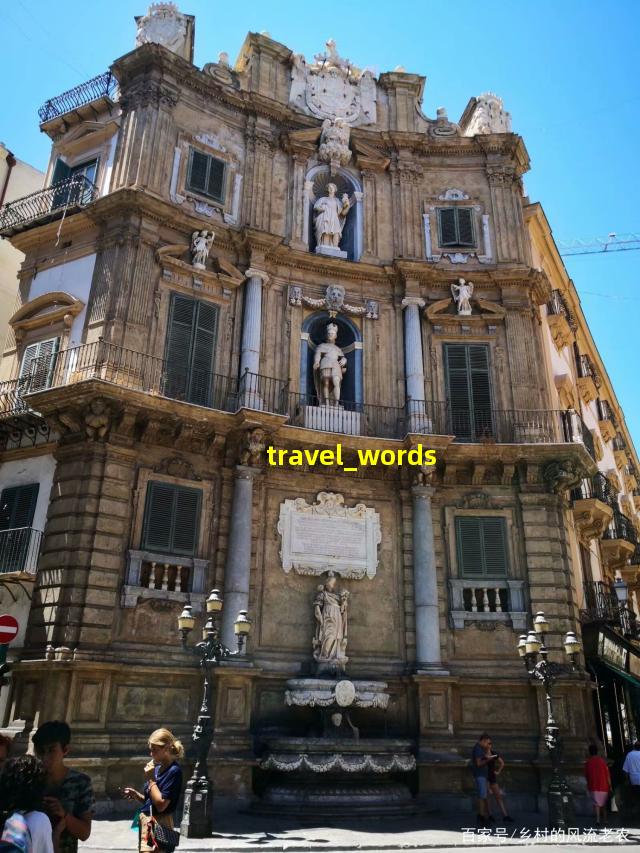旅行英语入境教程(出境旅游和入境旅游的英文)
1、旅行英语入境教程
Introduction
Traveling to a foreign country can be an exciting yet overwhelming experience, especially if you don't speak the local language. However, arming yourself with some basic travel English phrases can make your journey much smoother and more enjoyable. In this travel English tutorial, we will cover essential phrases and expressions to help you navigate your way through an English-speaking country.

Arrival
When you arrive at the airport, it's essential to know how to communicate and get around. Here are a few phrases that can come in handy:
- Excuse me, where is the baggage claim?
- Can you recommend a good taxi service?
- How much is the fare to downtown?
Accommodation
Staying in a comfortable and suitable place is crucial for a pleasant trip. Here are some useful phrases for finding accommodation:
- Do you have any available rooms?
- How much is a single/double room?
- Can I see the room before booking?
Dining
Exploring the local cuisine is an integral part of any travel experience. Here are some phrases for eating out:
- Can I see the menu, please?
- I am allergic to peanuts. Does this dish contain any?
- Could I have the bill, please?
Transportation
Getting around in a foreign country can be challenging, but knowing these phrases will help you navigate public transportation:
- How can I get to the city center?
- Is there a bus/train that goes to the airport?
- How much is a ticket to the next station?
Sightseeing
Visiting attractions and exploring the local culture is the highlight of any trip. Here are some phrases to enhance your sightseeing experience:
- What time does the museum open/close?
- Is photography allowed inside?
- Can you recommend any must-see attractions in the area?
Conclusion
Mastering a few essential travel English phrases can go a long way in making your journey stress-free and enjoyable. By learning these phrases and practicing them before your trip, you'll be able to communicate effectively, ask for help, and fully immerse yourself in the local culture. Remember, even if you're not fluent in the language, a friendly attitude and a willingness to try will take you a long way. Happy travels!
(Note: The image used in this article is for illustrative purposes only. The actual image may vary.)
2、出境旅游和入境旅游的英文
Introduction
As a travel enthusiast, I have always enjoyed exploring new destinations and immersing myself in different cultures. One of the aspects that fascinates me about traveling is the opportunity to experience both outbound tourism and inbound tourism. These two forms of tourism offer unique perspectives and experiences, creating memorable journeys for travelers.

Outbound Tourism
Outbound tourism refers to traveling from one's home country to another country for leisure, business, or other purposes. This type of tourism allows individuals to discover new landscapes, try different cuisines, and learn about diverse traditions. Whether it's a beach vacation in Bali, a wildlife safari in Africa, or a historic tour in Europe, outbound tourism offers a chance to broaden horizons and create lifelong memories.
Inbound Tourism
Conversely, inbound tourism involves travelers venturing into one's own country from abroad. It welcomes visitors from different parts of the world who want to explore its wonders. Inbound tourism contributes to the economy, promotes cultural exchange, and strengthens international relations. Tourists can marvel at historical landmarks, explore natural wonders, and interact with locals to gain a deeper understanding of the host country's heritage and way of life.
Benefits of Outbound and Inbound Tourism
Both outbound and inbound tourism have their own advantages. Outbound tourism allows individuals to experience new cultures, broaden their perspectives, and create lasting memories. It promotes personal growth, tolerance, and understanding. On the other hand, inbound tourism brings economic benefits to the host country, creates job opportunities, and fosters cultural appreciation. It allows locals to share their heritage and traditions with the world, promoting cultural exchange and understanding.
In conclusion, both outbound and inbound tourism offer unique and enriching experiences for travelers. Whether venturing into a foreign land or welcoming visitors from afar, these forms of tourism contribute to global understanding and appreciation for diverse cultures. As a travel enthusiast, I embrace both outbound and inbound tourism, and I believe that the world becomes a better place when we open ourselves to new experiences and embrace different cultures.
3、旅行英语入境教程pdf
Travel English: Guide to Entry

Traveling to a foreign country can be an exciting and enriching experience. However, it's important to be prepared, especially when it comes to communicating effectively in English during your stay. To help you navigate through the process, we have compiled a travel English guide that will assist you from the moment you arrive at the airport to exploring your destination.
Arrival at the Airport
When you arrive at the airport, you will need to go through immigration and customs. The immigration officer might ask you some questions, so it's useful to know phrases such as "I am here for tourism/business" or "I will be staying for X days." This will help you answer any queries confidently and smoothly.
Getting Around
Once you have cleared immigration and collected your luggage, you will need transportation to your accommodation. Familiarize yourself with basic phrases like "Where is the nearest taxi stand?" or "How much does a cab to downtown cost?" These will come in handy when communicating with taxi drivers or finding your way to public transportation.
Hotel Check-In
At the hotel, you may need to provide identification and make a reservation. Make sure you can say phrases like "I have a reservation under (your name)" or "Can I see the room before I decide?" Having these phrases ready will facilitate a smooth and hassle-free check-in process.
Dining Out
Exploring local cuisine is one of the highlights of any trip. To make the most of your dining experience, learn how to communicate your dietary preferences or allergies, as well as asking for recommendations. Familiarize yourself with phrases like "I am vegetarian" or "Can you recommend a popular local dish?" This will ensure that you have a pleasant and enjoyable dining experience.
Sightseeing and Travel Activities
Finally, as you explore your destination and engage in various travel activities, it's important to know how to ask for directions or tickets. Phrases such as "Where is the nearest museum?" or "How much does this tour cost?" will enable you to navigate your way and make the most of your travel experiences.
Remember, practice makes perfect. Before your trip, take the time to learn and practice these essential travel English phrases. Confidence in speaking English will not only enhance your travel experience but also make it easier for you to connect with locals and immerse yourself in the culture of your destination.
So pack your bags, grab your travel English guide, and get ready for an amazing journey full of unforgettable experiences!
4、旅行英语入境教程视频
欢迎来到我们的旅行英语入境教程视频
在我们的旅行英语入境教程视频中,我们将带你了解如何在不同国家顺利入境并享受愉快的旅行。不论你是第一次出国旅行,还是经验丰富的旅行达人,这些知识都会对你有所帮助。
了解海关的基本英语

在进入一个新的国家之前,了解基本的海关英语非常重要。我们将教你如何与海关官员有效沟通,例如如何表达你的行程、目的地和预计停留时间。这些简单的英语口语将使你在入境时更加顺利。
掌握常用旅行单词和短语

出国旅行期间,掌握一些常用的旅行单词和短语是非常有用的。在我们的教程视频中,我们将为你介绍一些关于住宿、交通、购物和餐饮方面的基本词汇和表达方式。这些知识将帮助你更好地与当地人沟通和解决问题。
了解当地文化和习俗

在我们的教程视频中,我们还会向你介绍一些关于当地文化和习俗的知识。了解当地人的价值观、礼仪和传统习惯将帮助你更好地融入当地社会,避免冒犯他人。这将使你的旅行经验更加丰富和有意义。
与我们一起享受美丽的旅行
我们相信,通过我们的旅行英语入境教程视频,你将更好地准备好自己的旅行。通过学习基本的海关英语、掌握常用的旅行词汇和了解当地文化,你将在旅途中变得更加自信和舒适。与我们一起,享受美丽的旅行!

.jpg)
.jpg)
.jpg)
.jpg)
.jpg)
.jpg)